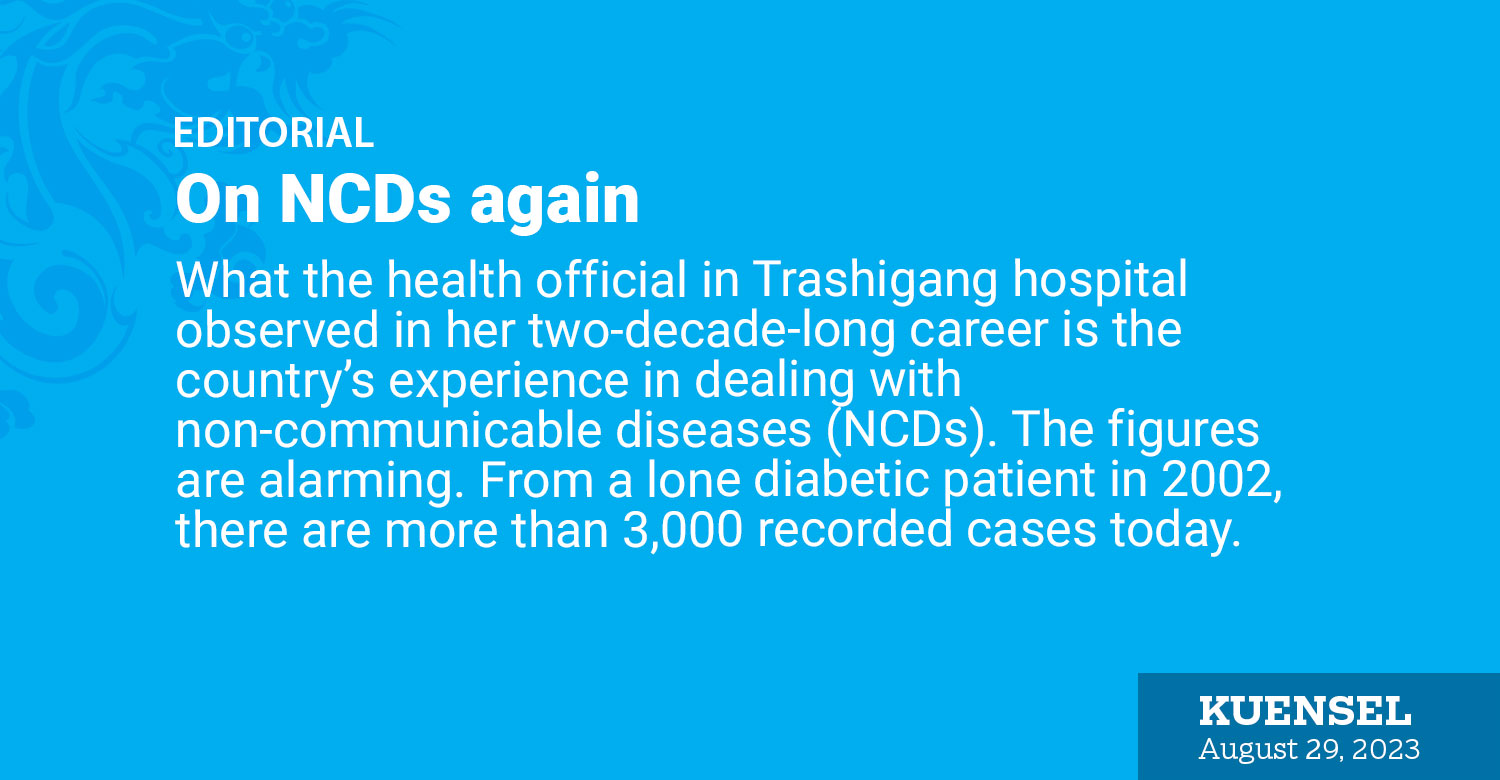What the health official in Trashigang hospital observed in her two-decade-long career is the country’s experience in dealing with non-communicable diseases (NCDs). The figures are alarming. From a lone diabetic patient in 2002, there are more than 3,000 recorded cases today.
Increased screening and surveillance could have contributed to the figures, but it is still a concern. What is more alarming is that 95 percent of patients screened through the hospital’s outpatient department are farmers and drivers. NCDs, also called lifestyle diseases, are linked to diet and lifestyle. Farmers, it is believed, can burn the extra calories as they are physically more active. This is not the case anymore.
The long line at the blood collection units at hospitals sees a mix of patients, many of them elderly villagers. Lifestyle has changed including in rural Bhutan where the farm drudgery or busy life has changed with modernisation and mechanisation. While diets have improved, replacing other healthier staple foods with cheaper imported rice is seen as an improvement, and lifestyles have changed for many who migrate to towns to live with their children or relatives.
What we call old habits, unhealthy diet, consumption of alcohol, high consumption of salt (Bhutanese consume more salt than the global average), the inability to kick the habit is costing us dearly. NCDs is already responsible for more than 50 percent of all deaths in the country.
On the positive side, NCDs are recognised as a priority in our health policy focusing on addressing the impact of unhealthy dietary habits, lifestyle, traditional practices, advocacy and risk assessment. We have already achieved a milestone by endorsing the implementation roadmap for the prevention and control of NCDs in the region 2022–2030. The Covid-19 pandemic derailed the concerted effort as all attention was drawn to fighting the pandemic.
Fighting NCDs should be a lot easier now. There is improved data on NCDs, and health centres are starting or have started dedicated screening centres for early detection and intervention. We know what is causing NCDs and how it can be prevented.
What calls for is a change in our habits and cooperation with healthcare givers to help ourselves. NCDs like diabetes or hypertension cannot be treated overnight. Those diagnosed with it should adhere to a medication regimen that is long and demands discipline or help. While prevention is still the best cure, timely diagnosis and medication can prevent costly referrals or life itself.
NCDs like diabetics, like a villager turned landlord said, is a cruel disease. She lives in Thimphu, grows three varieties of rice in her fields in Punakha and eats oats for breakfast and cucumbers for dinner.


